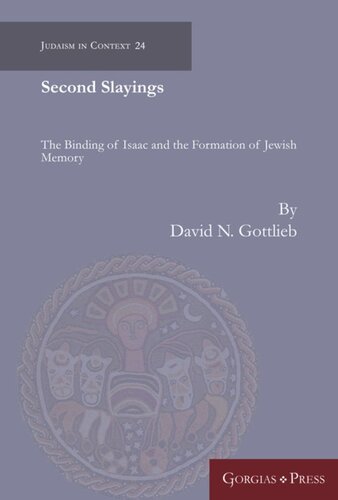

Most ebook files are in PDF format, so you can easily read them using various software such as Foxit Reader or directly on the Google Chrome browser.
Some ebook files are released by publishers in other formats such as .awz, .mobi, .epub, .fb2, etc. You may need to install specific software to read these formats on mobile/PC, such as Calibre.
Please read the tutorial at this link: https://ebookbell.com/faq
We offer FREE conversion to the popular formats you request; however, this may take some time. Therefore, right after payment, please email us, and we will try to provide the service as quickly as possible.
For some exceptional file formats or broken links (if any), please refrain from opening any disputes. Instead, email us first, and we will try to assist within a maximum of 6 hours.
EbookBell Team

4.4
22 reviewsThis work is a study of Jewish cultural memory as exemplified by rabbinic midrash of the Amoraic period, the second through fifth centuries of the Common Era, and especially midrash on the Akedah, the Binding of Isaac (Gen. 22:1–19). The Akedah is proposed and analyzed as a model for submission to the divine will through the act of interpretation. Rabbinic exegetes adopt and adapt interpretive stances modeled in the Akedah as a strategy for cultural reorientation and renewal in the wake of the destruction of the Second Temple in 70 CE. The rabbis construct a framework for cultural memory that relies on mimetic acts of interpretive substitution that are employed to confront, interpret, and remember ruptures as evidence of divine care. This form of memory is termed midrashic memory, which is proposed as inherent to rabbinic textual interpretation and whose origins are traced to the Akedah narrative itself. Midrashic memory is analyzed in selections from Amoraic midrash in Shalom Spiegel’s twentieth-century masterwork on the Akedah,The Last Trial,andproposed as the crux of a theory and taxonomy of Jewish memory. The project concludes with a theory and taxonomy of Jewish memory and an interpretation of the Akedah as metonym for cultural reorientation through the reharmonization of the lived, or ‘temporal’, and the covenanted, or ‘anamnestic’, planes of experience.